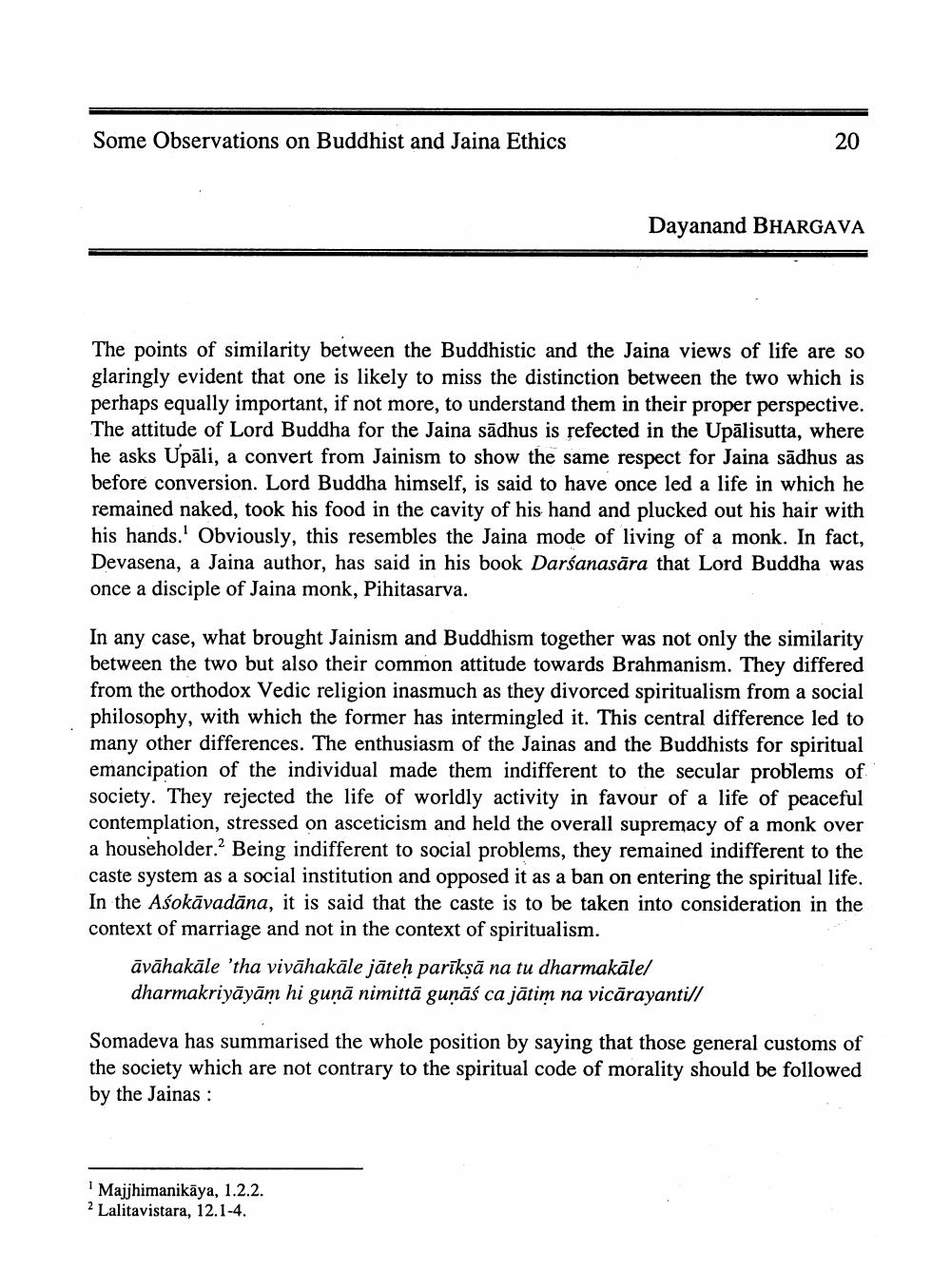________________
Some Observations on Buddhist and Jaina Ethics
20
Dayanand BHARGAVA
The points of similarity between the Buddhistic and the Jaina views of life are so glaringly evident that one is likely to miss the distinction between the two which is perhaps equally important, if not more, to understand them in their proper perspective. The attitude of Lord Buddha for the Jaina sādhus is refected in the Upālisutta, where he asks Upāli, a convert from Jainism to show the same respect for Jaina sādhus as before conversion. Lord Buddha himself, is said to have once led a life in which he remained naked, took his food in the cavity of his hand and plucked out his hair with his hands.' Obviously, this resembles the Jaina mode of living of a monk. In fact, Devasena, a Jaina author, has said in his book Darśanasāra that Lord Buddha was once a disciple of Jaina monk, Pihitasarva.
In any case, what brought Jainism and Buddhism together was not only the similarity between the two but also their common attitude towards Brahmanism. They differed from the orthodox Vedic religion inasmuch as they divorced spiritualism from a social philosophy, with which the former has intermingled it. This central difference led to many other differences. The enthusiasm of the Jainas and the Buddhists for spiritual emancipation of the individual made them indifferent to the secular problems of society. They rejected the life of worldly activity in favour of a life of peaceful contemplation, stressed on asceticism and held the overall supremacy of a monk over a householder. Being indifferent to social problems, they remained indifferent to the caste system as a social institution and opposed it as a ban on entering the spiritual life. In the Aśokāvadāna, it is said that the caste is to be taken into consideration in the context of marriage and not in the context of spiritualism.
āvāhakāle 'tha vivāhakāle jāteh parīksā na tu dharmakālel dharmakriyāyām hi guņā nimittā guņāś ca jātim na vicārayanti//
Somadeva has summarised the whole position by saying that those general customs of the society which are not contrary to the spiritual code of morality should be followed by the Jainas :
Majjhimanikāya, 1.2.2. 2 Lalitavistara, 12.1-4.




